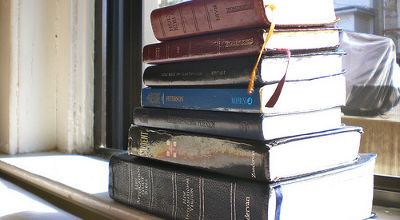Park Service Backpedals on Free Bible Ban
In a victory for free speech and the First Amendment, the National Park Service is once again allowing distribution of Bibles on federal property.
Since 2011, Shirley Elliott has sold produce and homemade jellies at Thibodaux Farmer’s Market near Jean Lafitte National Historic Park in Louisiana. Additionally, Elliott has provided free Bibles on her table for anyone to take at will. On December 1, a park ranger told her to take the Bibles off her table because “they were on federal property.”
Market regulations allow vendors to sell locally grown produce and other foods and handcrafts that are traditionally produced on a farm. In addition, the regulations stipulate “nonprofit organizations with missions related to … education, youth and/or nutrition are invited to participate in the Market” on an equal basis as vendors.
“A decision to allow free distribution of the things mentioned above, while disallowing and requiring the removal of Bibles and other religious literature … would be improper and discriminatory,” Liberty Counsel attorney Richard Mast told the superintendent of Jean Lafitte National History Park.
Two days later, the acting superintendent wrote, saying, “We regret the misunderstanding regarding the distribution of religious materials … The NPS [National Park Service] respects the right of vendors to make free religious materials available. Please assure Ms. Elliott that she is welcome to offer free Bibles at her produce and homemade jellies table.”
“We are thankful that the Park Service reversed its decision and protected Ms. Elliott’s First Amendment right to distribute literature,” says Mat Staver, founder and chairman of Liberty Counsel.
“Thankfully, Ms. Elliott did not allow herself to be bullied by those who want to remove Christianity from the public square. It is the right of every American to advocate a religious viewpoint. Offering books or literature to willing recipients is protected by the First Amendment. Mere disagreement with the content of the speech is not sufficient to deny those constitutional rights,” Staver says.














































